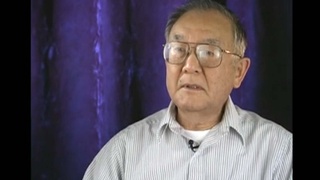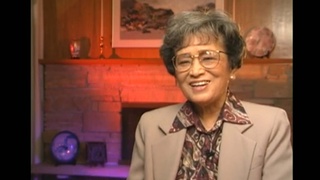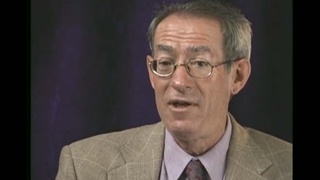Interviews
It’s the People
I think people should realize that it's not the so-called leaders that did the, got the redress passed in Congress, it's the people themselves. Don't fool, don't fool yourself thinking that you played a major role. They did, maybe, but if it wasn't for the people, there wouldn't be any leaders. Period. So I have to remind these people that individuals are good, but the bottom line is the people behind them. And it's creating this atmosphere where the so-called leaders can operate.
Date: September 13, 1997
Location: California, US
Interviewer: Larry Hashima
Contributed by: Denshō: The Japanese American Legacy Project.







